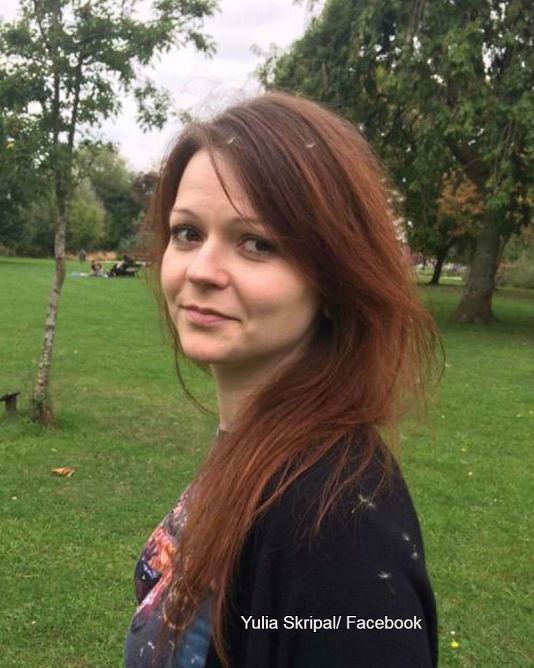The UK's national security adviser claims that Russia spied on the Skripals for five years before they were poisoned in Salisbury. Russia calls the allegations a "big surprise".
The UK’s national security adviser has claimed that Russian intelligence services spied on the former spy Sergei Skripal and his daughter Yulia for at least five years before they were poisoned in Salisbury.
In a public letter to NATO’s Secretary General Jens Stoltenberg, Mark Sedwill said the British had information indicating interest in the Skripals by Russian intelligence “dating back at least as far as 2013”. Then, “email accounts belonging to Yulia Skripal were targeted by GRU (Russia’s foreign military intelligence agency) cyber specialists”.
Sedwill also alleges that in the 2000s, Russia developed a chemical warfare programme designed to deliver nerve agents, “including by application to door handles”.
British police have said a nerve agent was found on Sergei Skripal’s front door at his home in Salisbury, southern England.
The letter, released by the UK Foreign Office, adds more detail in support of the British government’s case against Russia, which it accuses of being behind the poisoning. The national security adviser describes the “Novichok” nerve agent programme allegedly developed by the Soviet Union in the 1980s, and goes on to claim that “within the last decade, Russia has produced and stockpiled small quantities”.
“President Putin was closely involved in the Russian chemical weapons programme” in the mid-2000s, Mark Sedwill claims, arguing it is unlikely that Novichoks could be made and deployed by non-state actors. He repeats Britain’s assertion that it is “highly likely that the Russian state was responsible for the Salisbury attack”, saying no other country had the means, experience and motive to carry it out.
After being convicted in Russia of espionage, Sergei Skripal defected to Britain and would have been viewed by Russia as among a group of “legitimate targets for assassination,” the letter says.
Russia’s ambassador to Britain has described the claim that Moscow spied on the pair for five years as a “big surprise”.
“If someone was spying, why were the British services not complaining about that?” Alexander Yakovenko told reporters. “They always complain if something goes wrong. We didn’t see any signs, any applications from the British side that they are not happy with the way Skripals were living in Salisbury."
The ambassador added that he had not seen the letter at that stage. Sergei Skripal remains ill in hospital while his daughter has been discharged and taken to a secret location.
Yakovenko has accused the British government of trying to get rid of evidence related to the Skripal case, of lacking transparency and of refusing to cooperate with the Russian authorities.
The British letter comes a day after the Organisation for the Prevention of Chemical Weapons (OPCW) confirmed UK findings that the Skripals had been poisoned with a Novichok military-grade nerve agent. The chemical watchdog did not apportion blame for the attack in early March, but said the chemical was of “high purity”.
The UK secured widespread support among its Western allies over its stance pointing the finger at Russia. The EU’s 27 member states agreed with Britain and most expelled Russian diplomats suspected of spying.
On Friday an aide to Markus Ederer, the EU’s ambassador to Russia, said he had returned to Moscow, three weeks after being recalled in symbolic retaliation by the bloc for the Salisbury poisoning.












